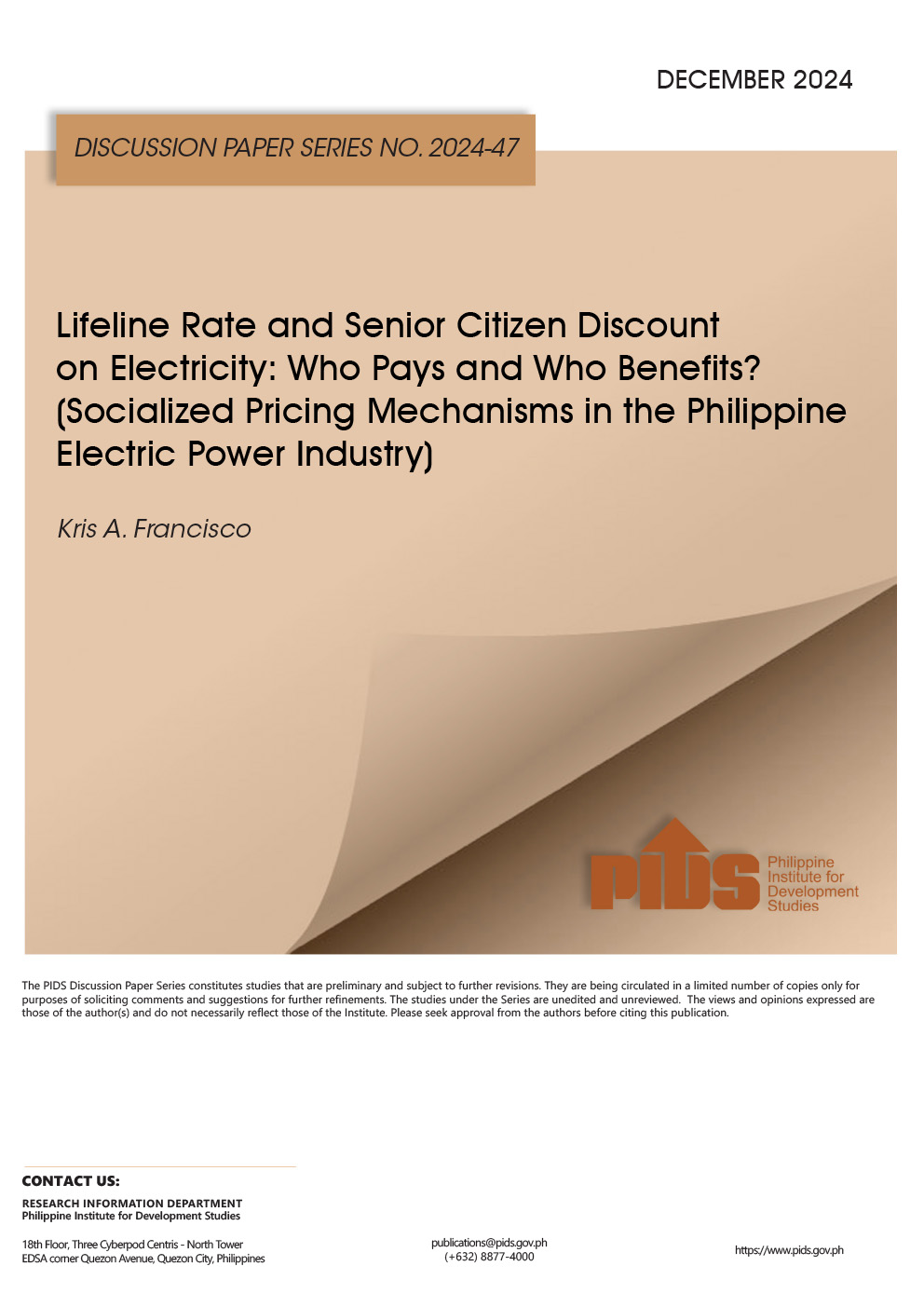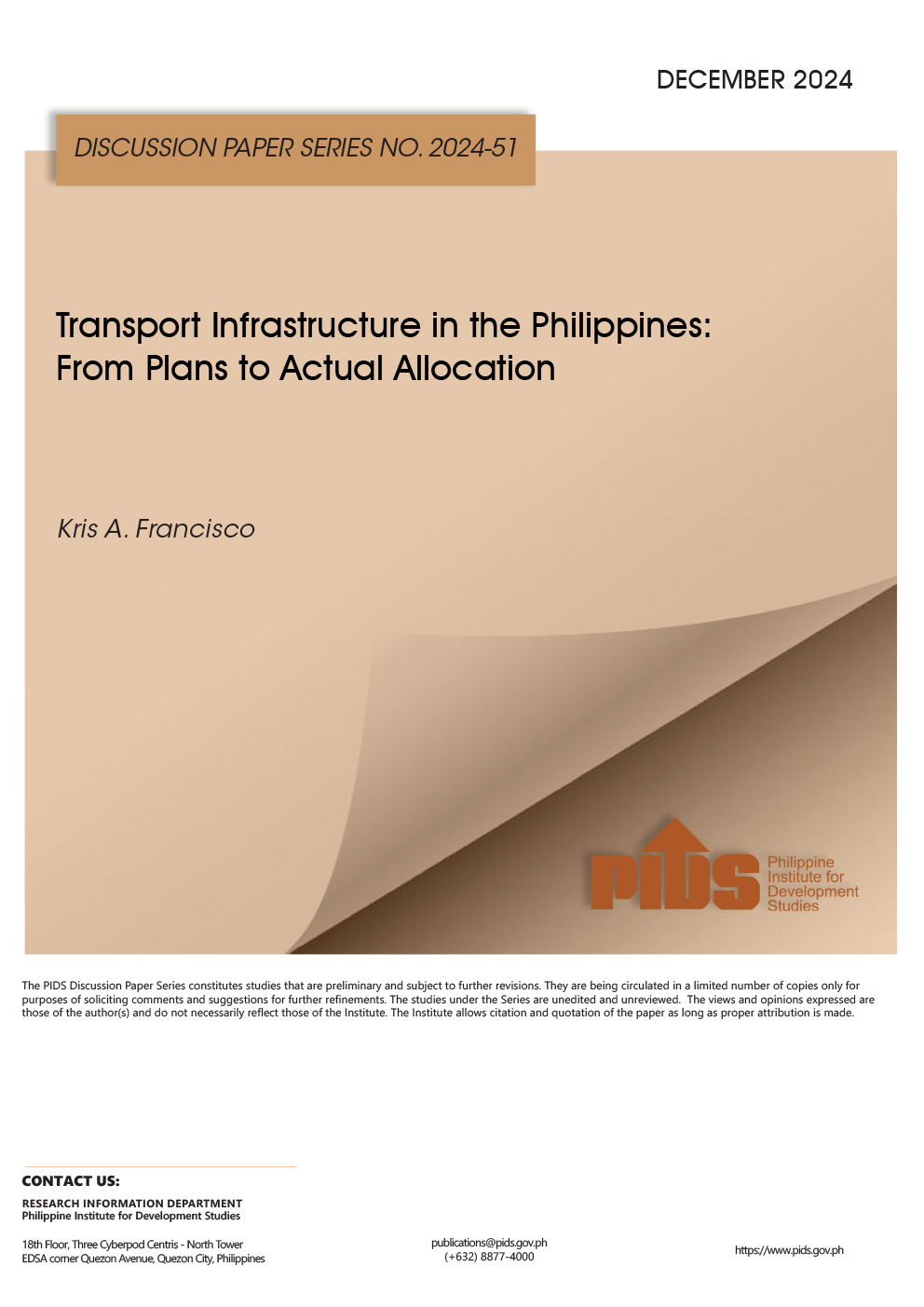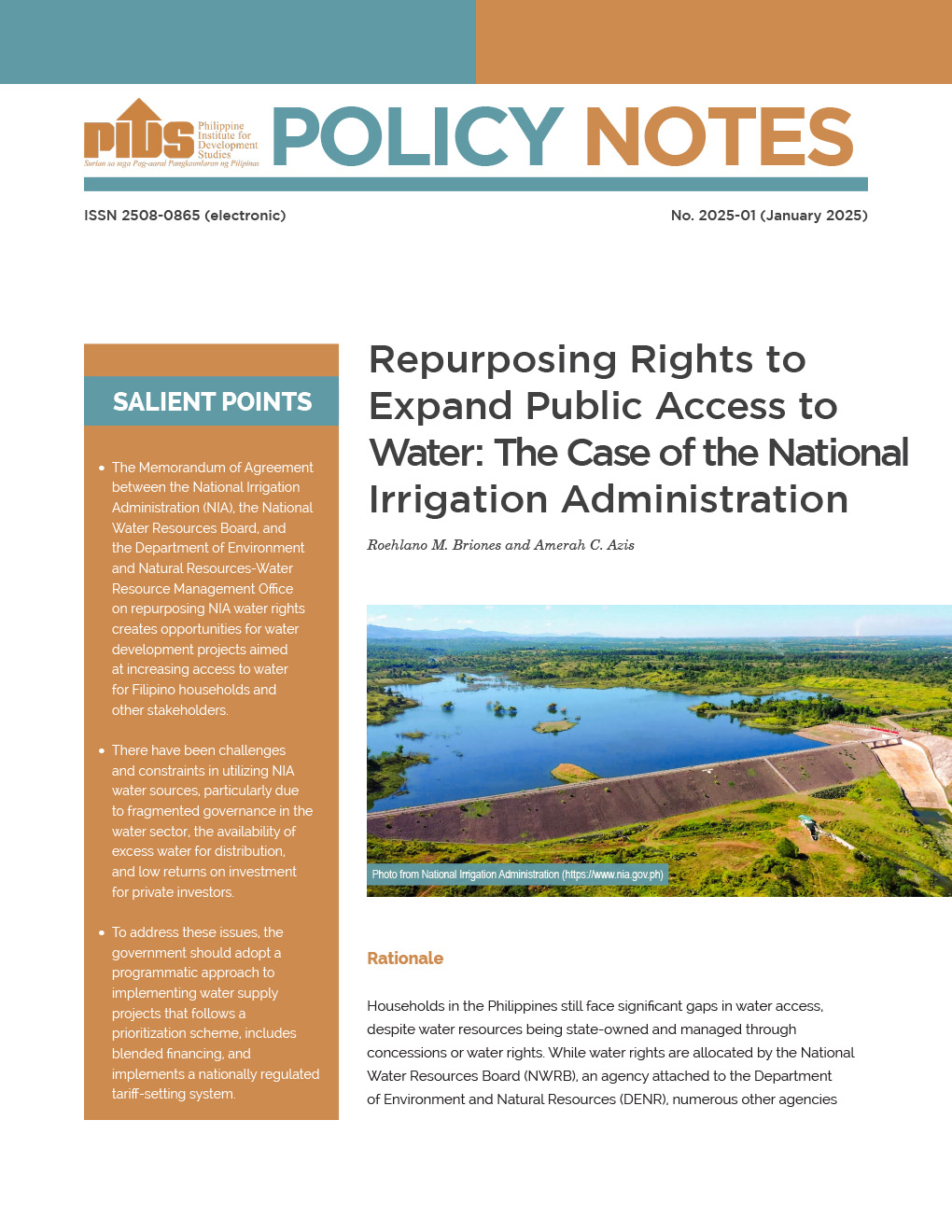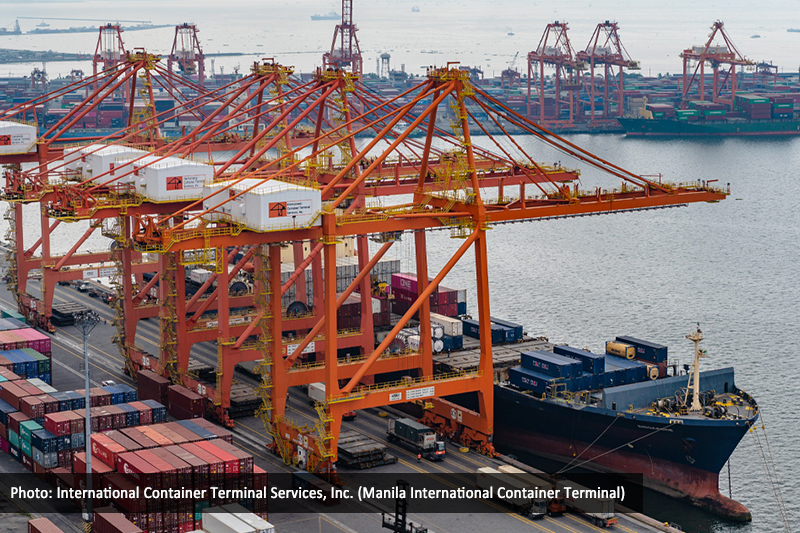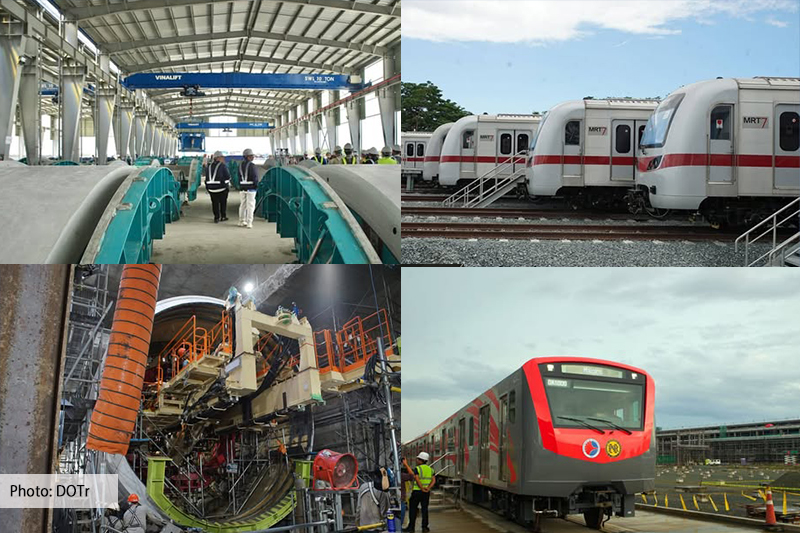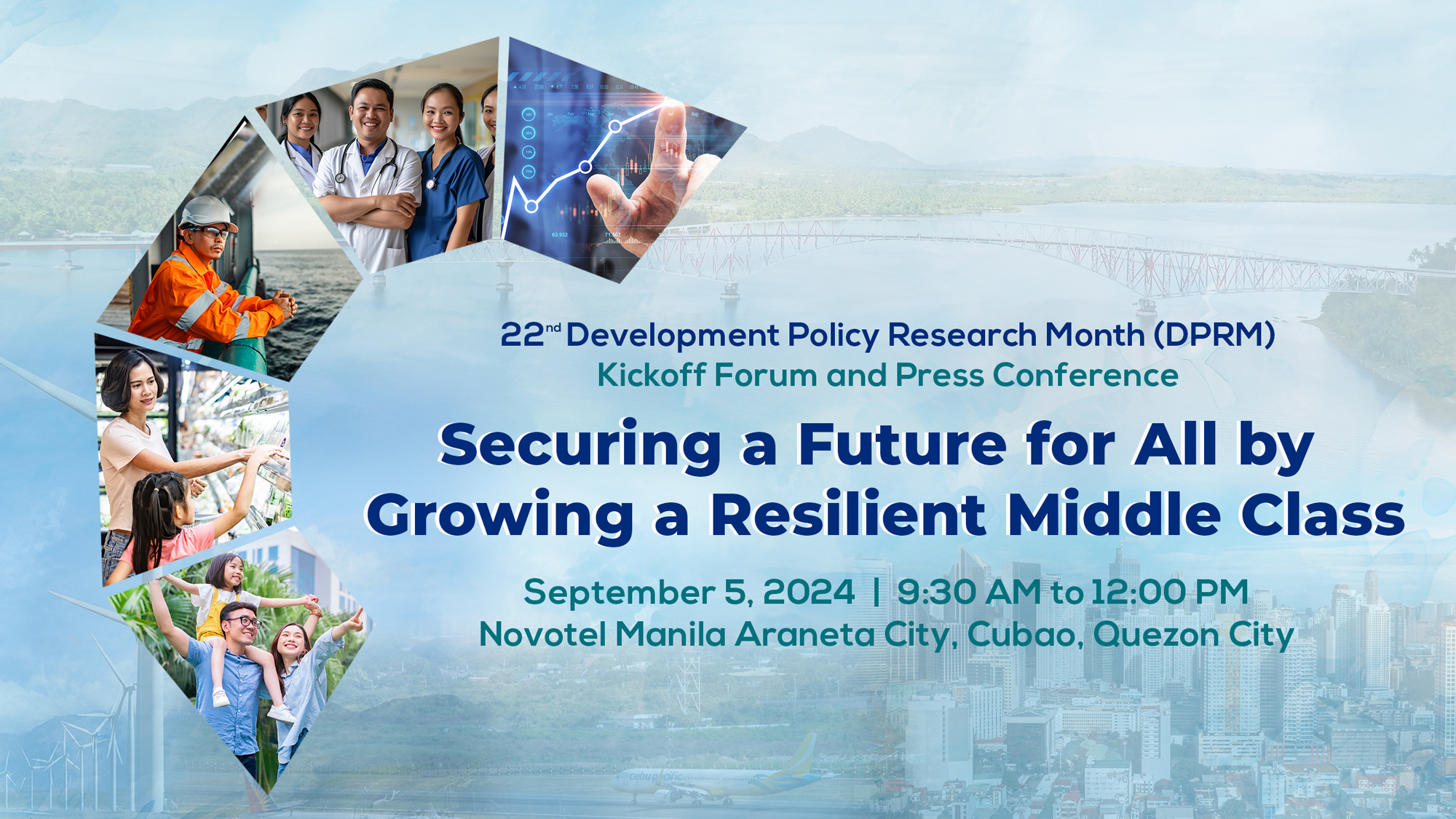State-run think tank Philippine Institute for Development Studies (PIDS) is urging the creation of a unified disaster management body responsible for all phases of disaster risk reduction and management (DRRM) to streamline response and minimize the ill-effects of disasters to the economy.
In a policy note titled “Have we institutionalized DRRM in the Philippines? PIDS research fellows Sonny Domingo and Ma. Divina Olaguera said given the country’s exposure to disaster risk, it cannot continue to have a focal disaster organization that only has coordinative functions like the National Disaster Risk Reduction and Management Council (NDRRMC).
The NDRRMC, given its structure and composition, perennially suffers from competition with other departmental missions. It may be timely to look at other institutional arrangements for dealing more comittedly with DRRM,” said the researchers.
Citing a 2016 study by the World Economic Forum, PIDS said the Philippine economy lost an average of $1.6 billion every year to natural disasters from 2005 to 2014.
Vulnerability to natural disasters is among the leading obstacles to doing business and investing in the country,” PIDS said. “Slow economic development, wealth distribution disparities, high population growth, and rapid urbanization are some of the factors that increase the country’s vulnerability to disasters.
The country’s main DRRM unit, the NDRRMC is a coordinating body imbued with policymaking, integration, supervision and evaluation functions. It is chaired by the secretary of national defense and backstopped by the Office of the Civil Defense.
In a policy note titled “Have we institutionalized DRRM in the Philippines? PIDS research fellows Sonny Domingo and Ma. Divina Olaguera said given the country’s exposure to disaster risk, it cannot continue to have a focal disaster organization that only has coordinative functions like the National Disaster Risk Reduction and Management Council (NDRRMC).
The NDRRMC, given its structure and composition, perennially suffers from competition with other departmental missions. It may be timely to look at other institutional arrangements for dealing more comittedly with DRRM,” said the researchers.
Citing a 2016 study by the World Economic Forum, PIDS said the Philippine economy lost an average of $1.6 billion every year to natural disasters from 2005 to 2014.
Vulnerability to natural disasters is among the leading obstacles to doing business and investing in the country,” PIDS said. “Slow economic development, wealth distribution disparities, high population growth, and rapid urbanization are some of the factors that increase the country’s vulnerability to disasters.
The country’s main DRRM unit, the NDRRMC is a coordinating body imbued with policymaking, integration, supervision and evaluation functions. It is chaired by the secretary of national defense and backstopped by the Office of the Civil Defense.

